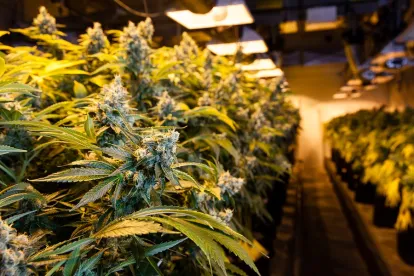As towns and municipalities scrambled to meet the August 22nd deadline to regulate or prohibit marijuana establishments within their borders, a few noticeable trends emerged. As expected, many townships, including Freehold, Morristown, Franklin Lakes, Cherry Hill, Asbury Park, Haddonfield, and Ocean City, prohibited any and all marijuana businesses and operations outright. Others such as Newark, Egg Harbor Township, Hackensack, Fort Lee, Saddle Brook, Cinnaminson, Mount Holly, Collingswood, Bridgeton, Bloomfield, Woodbury, Jersey City, Lambertville, New Brunswick, Red Bank, Rockaway, Rahway, Elizabeth, and Hackettstown have opted to allow marijuana businesses.
Of those opting-in, many towns such as Bordentown, Moorestown, and Atlantic City have imposed requirements and limitations on the number of each type of business allowed in the municipality, as well as requiring applicants to obtain a local license and pay an annual fee to maintain that license (separate and apart from the state-issued license). Of those opting-out, some towns like Princeton and Kingwood have opted-out to meet the deadline but plan to investigate further and develop regulations consistent with the town’s preferences at some point in the future.
Most townships to allow at least one marijuana business license class make it a conditionally allowed use in certain commercial and industrial zones with various restrictions, such as restricting any cannabis establishment within 200-1000 feet of a residential zone, church, school, public park, or child-care business.
Towns like Mount Laurel that allow marijuana businesses impose stringent requirements, including minimum lot sizes and setbacks such that the universe of compliant properties is (perhaps intentionally) prohibitively small or nonexistent. Some towns like Cinnaminson go even further by establishing comprehensive guidelines and requirements to address odor concerns, noise mitigation, and security. Others, like Shamong, get creative with the ordinances and allow a specific class of license, usually a class 5 dispensary, only as an accessory use attached to a building used for another class of license (such as a cultivation or processing facility).
As towns grapple with the new cannabis statute and regulations, as well as the influx of interested applicants looking for local approvals and suitable real estate, many see opportunities for new tax dollars and economic revitalization. In contrast, others remain concerned about public safety, stigma, and perception. With 565 municipalities, applicants are bound to come across every shade of green imaginable.



 />i
/>i
